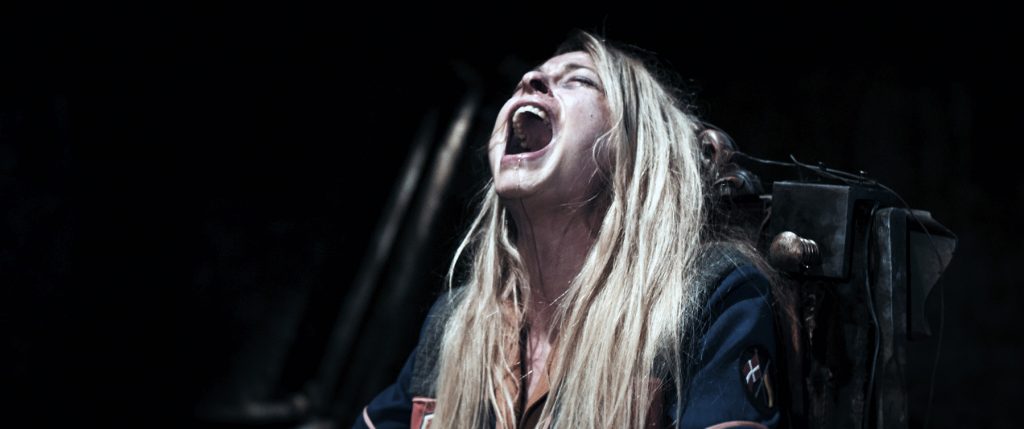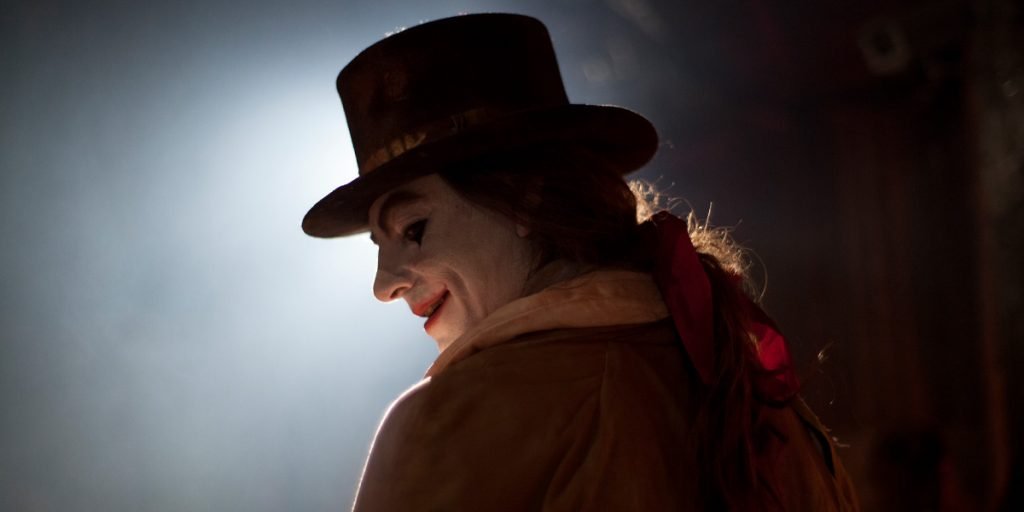The Ringmaster plays with all sorts of tactics we’ve seen before in films within the horror genre, and uses them to put audiences in their place.
The setup to Søren Juul Petersen’s The Ringmaster is pretty familiar territory to most who keep up with horror: innocent characters being targeted by a menacing figure/group, the group more likely than not trying to prove what they believe to be a powerful point, or teach the characters a “lesson”. Anges (Anne Bergfeld) and Belinda (Karin Michelsen) are working the night shift in a petrol station, and it’s seemingly a quiet night, as all of Denmark has their eyes on the big final sports game that is currently occurring. Things become a bit less uneventful as more and more odd things begin to happen, and a few strange customers roll in. At first, the women think nothing of it, and assume that maybe these people are just typical lonely weirdos, but as time goes on, the two become more and more uneasy. Their intuition is correct, as they soon become forced objects in a horrifying “game”, all as onlookers cheer on their pain and suffering.
The Ringmaster’s best quality is that it’s forthright about the direction it is going in. The typical horror clichés are subverted by the way that the story is told, as we go back and forth in time. In one scene, we witness Agnes and Belinda getting more and more creeped out during their work shift, and the next is the aftermath, where Agnes is bound, bloody, and afraid, held in a dark place with her torture broadcasted for the sadistic enjoyment of many morbidly curious spectators. And to make things all the worse, many of these viewers even seem to enjoy it.

The film holds the audience accountable: we get glimpses of the grisly finale before even knowing how we got there. Yet, we’re stuck watching anyways, as curiosity gets the better of us just like the audience in the film that we internally criticize. This is exactly Petersen’s intent: in the film’s prologue, a presenter (Lars Knutzon) appears in front of red curtains to warn those watching of what is to come, and that what we’re seeing is going to deal with “the boundaries for good entertainment and the morbid curiosity of the human mind”. It’s a question on why we enjoy seeing the suffering of others so much, and how some people are willing to take things too far for the sake of their own enjoyment. For some, it can certainly read as being cheesy and trying too hard, but there is far more to appreciate about The Ringmaster than not.
The cinematography is actually quite nice: several gorgeous shots prove that the film uses its nighttime setting to its advantage. There’s a steady sense of tension throughout: even if we’re treated to the “after” as we’re still viewing the “before”, the film still manages to keep the viewer on edge, and ends up being quite horrifying. The actual ringmaster (Damon Younger) is over-the-top, but in just the right way to fit within the movie’s world. Even if clowns are overplayed in the world of horror movies, Younger’s character still feels fresh and entertaining, and creepy as all hell.
The Ringmaster isn’t without its flaws, like the previously mentioned poor writing at points, and performances that don’t quite reach the level of Younger’s. It still manages to get its message across, and after watching, the viewer will be left wondering why exactly we seek out horror films, and why we derive so much pleasure from seeing the powerless be tormented. We also question where exactly we draw the line, and if we even are allowed to after being a bit complicit, just by spectating.
The Ringmaster will be available on DVD & Digital Download from 30th November & In UK Cinemas from 2nd December.

